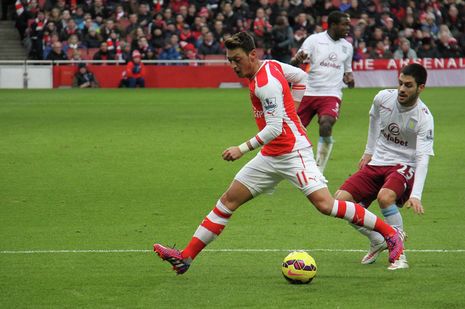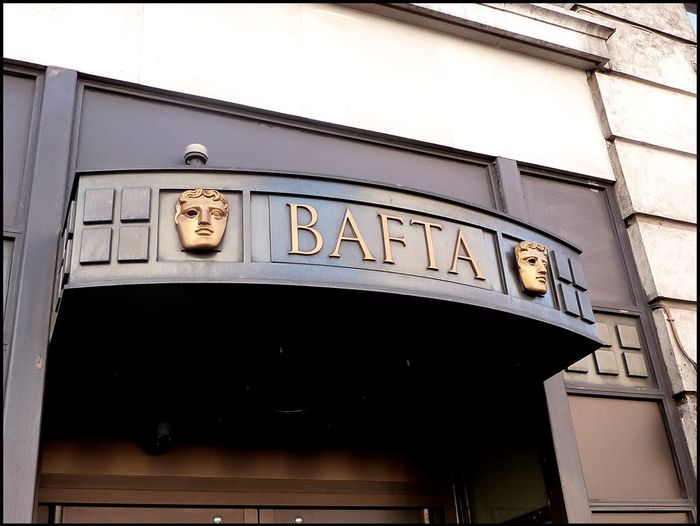Enough with the empty platitudes, Football must address its racist culture
Callum Wainstein argues that Arsenal’s recent performative acts of allyship are in part self-interested, empty platitudes and calls for Clubs to actually tackle the evident racism that exists both systemically and linguistically within the game and its broadcasting.

Arsenal Football Club, along with other Premier League teams, have been noticeably eager to perform support for the current BLM movement - from armbands to taking a knee before games. However, the football industry’s record on racism, including anti-Blackness, is a chequered one and encourages us to be sceptical of their motives. Less than a year ago, when Mesut Özil powerfully spoke out against the ethno-religious persecution of Uighur Muslims in China, Arsenal responded by distancing itself from their player’s position, claiming that ‘As a football club, Arsenal has always adhered to the principle of not involving itself in politics’. Inconsistencies like this suggest an ulterior motive to their support of the BLM movement.
"Gestures, however shallow, of support from other industries and celebrities, have created a situation where it would be financially damaging to appear to not support the movement."
Arsenal are at their core a business, and it was a financial decision to not stand with Özil against China. The club would have been mindful of the financial damages that the NBA faced when Daryl Morey, of the Houston Rockets, spoke in solidarity with the Hong Kong protests. Chinese firms responded by suspending their sponsorship and state-run broadcasters refused to show NBA games. This came (in the words of the league’s head, Adam Silver) at a ‘fairly dramatic’ cost to the League. Özil was already personally feeling the financial wrath of China, with his likeness removed from the Chinese edition of PES and his 30,000 strong Chinese fan club being closed down. Arsenal were thus unwilling to risk facing financial losses by taking a principled stance.
Money informed Arsenal’s refusal to support Özil in 2019, and financial self-interest has in part guided their response to the current protests now. The current BLM movement, to the frustration of many activists, has been heavily co-opted and monetized by many corporations and brands, including Arsenal’s key markets. Many have stated their support, but this often does not scratch the surface of material demands made by Black people, for BLM. Gestures, however shallow, of support from other industries and celebrities, have created a situation where it would be financially damaging to appear to not support the movement. For example, Crossfit is currently in considerable financial trouble, with Adidas having severed their partnership with the company due to its founder’s crude tweets about George Floyd’s death. As such Arsenal, and the league as a whole, have been eager to remain ahead of the cultural Zeitgeist and be seen as supporting the movement.
"Racism is structurally and linguistically ingrained into the game. It is going to take much more than empty platitudes to redeem it."
However, as the football clubs and associations are only motivated by their financial needs, rather than any actual desire to enact change, they have traded in only shallow, symbolic gestures. Whilst having ‘Black Lives Matter’ on the back of their shirts, or tweeting a black tile is better than doing nothing, it fails to acknowledge the structural or linguistic racism which remains rampant within English football.
The league has refused to implement the Rooney Rule (in which a Black applicant has to be interviewed for any job opening), resulting in the shameful under-representation of Black managers within the game – although a quarter of players are Black, there is one BME manager in the Premier League, Nuno Espirito Santo (who got his start in Portugal). The divergent careers of two England captains illustrates this problem. While Steven Gerrard was able to secure the manager’s position at Rangers (the most successful club in Scottish history), Sol Campbell had to drop down four divisions to literally the worst club in England in Macclesfield Town (at the time of hiring they were 92nd out of 92 Professional English clubs). This is symptomatic of the general lack of black representation across the institutions of English football: there are no black owners, chief executives or chairs amongst any of the 92 professional clubs in England, and only 3% of all board members are black. Hopefully this situation is about to change, with players such as Raheem Sterling speaking out, claiming that there is a need to give black ‘people the chance they deserve.’ However, it speaks volumes to the failings of the footballing community that it had to be Sterling, a player, rather than someone involved in the running of football to take a stand.
This is only part of the problem. A recent study has uncovered the pervasive racist discourse within football. The League and international board claim to take a hard line on racism yet the Bulgarian FA were fined less for their spectators’ frequent racist chanting than Nicklas Bendtner was for wearing a pair of Paddy Power branded underwear during Euro 2012 (an obviously disgusting crime considering that the Danish FA’s official betting sponsor was Ladbrokes). Underlying this, is a second form of racist discourse. Black players are consistently reported in ways that underplay their intelligence and draw attention to their physical characteristics instead. This has been going on since at least the 1950s. The Brazilian and Austrian teams were the two most technically gifted teams in the world at that time, but this did not stop Alf Ramsay from evoking the n-word to describe the Brazilians’ playing style, alongside the phrase in a ‘circus ring.’ In contrast, the Austrians were likened to ballerinas dancing a ‘Viennese waltz’ (Evening Standard, November 26th, 1951). This problematic discourse hasn’t gone away, as evidenced by the ways in which the playing styles of Bonucci and Koulibaly are described on Wikipedia. The two players are consistently top in pass accuracy and pass completion stats in Serie A, however while Bonucci is described as someone ‘primarily known for his technique, passing range’, Koulibaly is described as ‘a large, aggressive, quick, and physically strong’. I wonder if you can guess which one is the white player and which is Black? Many football fans unthinkingly take part in this type of problematic discourse, and it is our own responsibility to investigate and challenge the way we perceive Black players. Whilst we may see this as an isolated issue, it is partially the pernicious assumption that Black players as less ‘intelligent’ that holds them back from getting managerial employment and it is imperative that the FA and TV broadcasters push for change and accountability regarding this.
There are real problems pertaining to race in football. It is vital that we are not fooled by the Premier League’s financially motivated pastiches into thinking that suddenly racism in football is suddenly going to be solved. Racism is structurally and linguistically ingrained into the game. It is going to take much more than empty platitudes to redeem it.
 News / Right-wing billionaire Peter Thiel gives ‘antichrist’ lecture in Cambridge6 February 2026
News / Right-wing billionaire Peter Thiel gives ‘antichrist’ lecture in Cambridge6 February 2026 News / Cambridge students uncover possible execution pit9 February 2026
News / Cambridge students uncover possible execution pit9 February 2026 News / Man pleads guility to arson at Catz8 February 2026
News / Man pleads guility to arson at Catz8 February 2026 News / Epstein contacted Cambridge academics about research funding6 February 2026
News / Epstein contacted Cambridge academics about research funding6 February 2026 News / John’s duped into £10m overspend6 February 2026
News / John’s duped into £10m overspend6 February 2026









